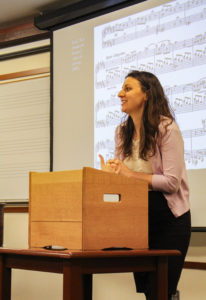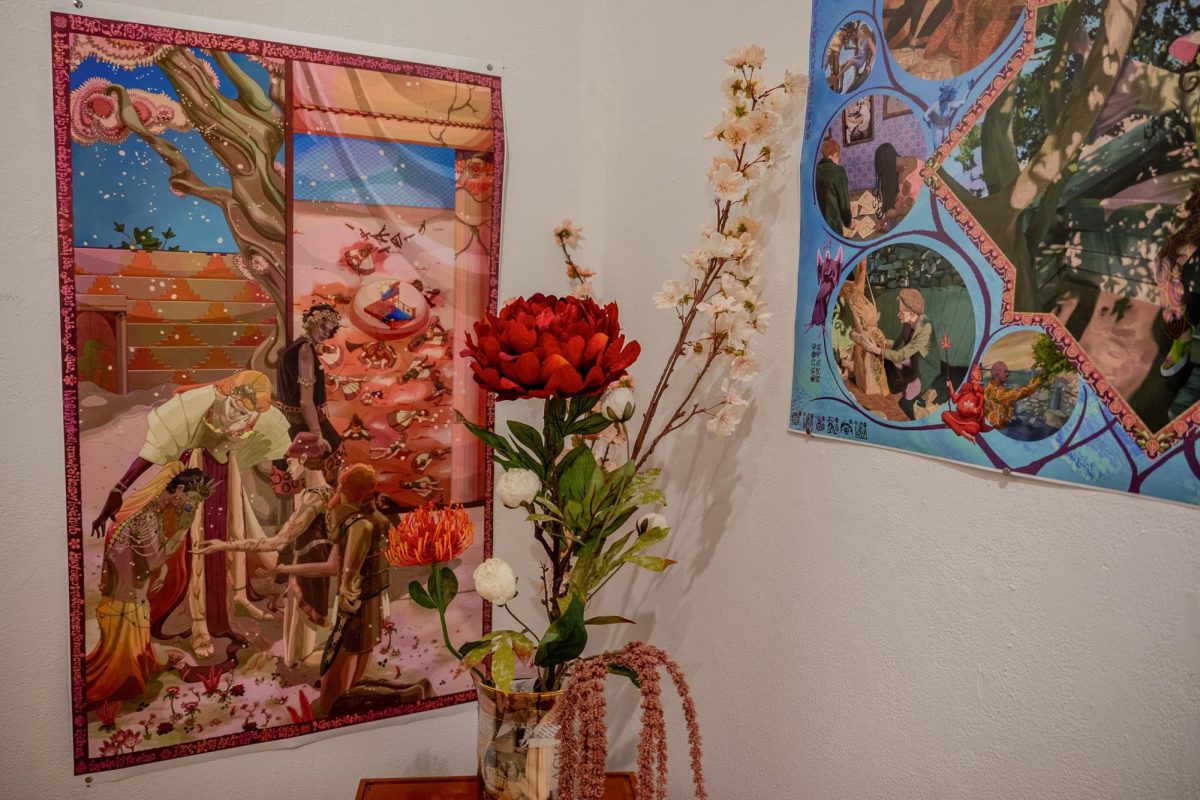By Samantha Stagg
staggsam@grinnell.edu
On Tuesday, April 10, Allie Kieffer ’08, assistant professor of musicology at Rice University and a Grinnell College alumna, visited the College to hold a lecture titled “Inharmonious Bells: Materialities of Listening in Ravel’s ‘La Vallée des cloches.’”
Kieffer did not always want to pursue a career in the realm of music. In fact, when she first arrived at Grinnell she was planning to go to law school. One of her favorite classes was on political theory.
“It was amazing. It just, like, opened up my mind to all sorts of new ways of thinking about texts … and how ideas change over time. … That was a really important class,” she said.
However, as she began playing piano more seriously and started taking advantage of Grinnell’s open curriculum, with classes in philosophy and English, Kieffer realized she had other interests. But her classes in political science continued to serve her well. The skills she learned in the political theory course translated into thinking about the historical side of music and how ideas about music have changed over time.
“A lot of the skills that I learned in that class I think set me up really well for everything I’ve done since then,” she said.
When she first decided to be a music major, Kieffer still thought she would apply to law school. But her numerous humanities classes and love of piano drew her further and further away from law.
“It was a gradual transformation,” Kieffer reflected. By the beginning of her senior year, she knew music history was her calling, and began applying to music grad schools instead of law schools.
Professor Eugene Gaub, music, remembers what Kieffer was like as a student.
“I remember Allie as an excellent pianist … but her true gift was for writing. Her paper for my Mozart opera seminar was just phenomenal: ‘Mozart’s Exalted Style: Forgiveness, Entreaty and the Construction of Human Power Relationships.’ I couldn’t get to sleep after reading it. … Her work spoke for itself,” he said.
Kieffer went on to obtain a doctorate from Yale University and a post-doctoral fellowship at Stanford. She also has a book contract with Oxford University Press.
Gaub attributes Kieffer’s mountain of success to all her hard work. He understands that talent and luck have their place in her story, but “sustained effort over a long period of time was the key.” Gaub believes current students at Grinnell can look to Kieffer’s successes as inspiration.
“She is a terrific role model for Grinnell students,” Gaub said. “Hard work does pay off.”
Kieffer’s lecture explored the use of bell sounds in French composer Maurice Ravel’s piano music. She hopes students who attended learned how music is deeply connected with the context in which it was born.
“There are a lot of cool ways to think about music history. … There are tons and tons of ways that music is intersecting with the historical world that it’s in,” she said.
To current Grinnell students thinking of majoring in music, Kieffer offers this insight: “You can do a lot of things with a music major. You don’t have to do what I did. I think there are a lot of ways that a music major can cultivate skills that are really useful and life enriching. … It can be a really exciting major. … It can set people up really well for all sorts of things in life.”




















































